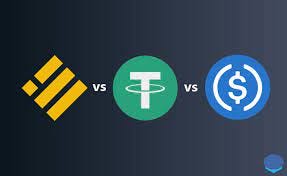Why Bitcoin and not Crypto?
I will state plainly and clearly that Bitcoin is, without a doubt, the single most important invention of the 21st century. It is on the scale of revolutionary technologies like the internet and the steam engine. It will have the same societal importance as the U.S. Declaration of Independence and the Magna Carta, and it will have an impact as significant as the separation of Church and State. In short, Bitcoin is the separation of Money and State. Money that cannot be controlled or manipulated by any source and one that has absolute scarcity built into its architecture.
Making money cannot be free
Nobody expresses this point more clearly than Strike CEO Jack Mallers. In his interview with Bloomberg in 2022, he outlines this by explaining that:
“If you want an asset to have a commodity premium, creating money cannnot be free. That, if the fact that a lot of people want to create Bitcoin, it becomes more difficult, is why the thing works.”
He then takes aim at the Proof of Stake (PoS) consensus mechanism by outlining that:
“Someone like Blackrock just buys stakes in the network” implying that whales are able to exert influence over the consensus mechanism through their financial leverage rather than exerting
energy and competing via the Bitcoin Proof of Work consensus mechanism.
Blockchain Trilemma
Understanding this is key to understanding why Bitcoin is different from other cryptocurrencies. Blockchain technology has a scalability issue under the initial PoW mechanism. Essentially, the more popular the blockchain becomes, the more difficult it is to process transactions. Visualize a pipe with flowing water; the more water trying to pass through, the slower the rate will be as a backlog builds up.
Other blockchains have tried to solve the scalability issue by changing the consensus mechanism on how new blocks are validated, the most popular being PoS. This is done by having only a few number of validators verifying blocks. This increases the efficiency and makes the energy costs substantially less. However, in doing so, they reduce the scale of decentralization and ultimately make it less secure since there are now fewer, more concentrated central points of failure.
Similarly, other blockchains, like permissioned blockchains used in the private sector, may not require a high degree of decentralization. They can centralize the validators and increase their security and scalability. They need complete control over their blockchains and are able to make changes when needed. This is the opposite of what Bitcoin achieves and, in monetary terms, is akin to a Central Bank Digital Currency.
Bitcoin’s PoW consensus mechanism is a feature, not a bug. When it comes to developing an ideal blockchain for value transfer as a new form of money, it MUST prioritize its security and decentralization. Only by doing so can it eliminate counterparty risk and the issue of liability. The more competition in mining and the more validators confirming blocks, the more resistant the blockchain ultimately becomes to 51% attacks.
Bitcoin is not a liability
Back to our friend Jack Mallers. He correctly identifies that Bitcoin:
“Is not a liability. Your relationship to Bitcoin is not a proxy to some foundation, some team, some corporate structure, or some development decision.”
Changes to the network are only made possible by validators, which anyone who has an internet connection is able to do via downloading a copy of the blockchain and running it.
More importantly, Bitcoin, by design, is leaderless. There is no one directing the decisions and changes to the blockchain.
“In fact, the founder of Bitcoin, he, she, or they might be F#$king dead! And it's working really well.”
Liability doesn’t mean bad
This is the part where I tend to split from most of the Bitcoin community, especially the Bitcoin maxis. There are some crypto projects that I am intrigued by and believe provide actual utility. Not everything is a shitcoin. Monero is a PoW blockchain that provides privacy to transactions. This is an area that Bitcoin may struggle with as we see a crackdown on bitcoin tumbler services. Yet Monero does not have the same degree of decentralization as Bitcoin does.
I believe Stablecoins provide an essential service to those living in countries suffering high inflation as a means to protect their wealth in the short term. Yet, there remains counterparty risk and a liability issue with stablecoins. When Silicon Valley Bank collapsed in March of 2023, Circle’s USDC became depegged because there was uncertainty around the company’s uninsured deposits. Similarly, the trading of BUSD became frozen after the SEC issued a Wells Notice to Paxos in February 2023. These liability relationships simply do not exist with Bitcoin because of how secure and decentralized it is through the PoW consensus mechanism.
A final analogy from Jack
The elimination of a liability relationship with PoW is revolutionary. Once you understand how important the PoW consensus mechanism is, this is how you should think about the rest of the crypto industry.
“If proof of work is like we finally got the airplane to fly, then proof of stake is like we know how to make it cheaper, faster, and less carbon efficient just by not flying. That’s not a competitor. That’s just a totally different product.”
My conclusion
Bitcoin is different. Bitcoin is not crypto. The two can mutually exist specifically because.
Any new blockchain utilizing PoW will never be as decentralized as Bitcoin, so won’t be a threat.
Any non-PoW consensus mechanism will ultimately make the trade-off in the blockchain trilemma, so won't be as decentralized or secure. So isn’t a threat.
Not every blockchain is a competitor - do NFTs in video games really need the same degree of security and decentralization as something creating the separation of Money and State? I don't believe so.
I reiterate that the invention of Bitcoin will be seen as the single most important invention of the 21st century. I am a loyal bitcoiner and have full faith in the inevitability of a Bitcoin Standard. The key will be educating the masses about its benefits over crypto and why it differs.
Check out the full video of Jack Mallers Bloomberg interview below.








